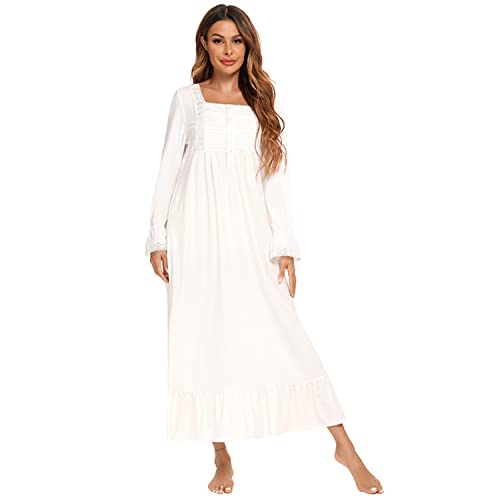The importance of choosing the right nightgown for a good night’s sleep
Sleeping well is essential for overall health and choosing the right nightgown is crucial to achieving a good night’s sleep. The wrong fabric, fit, or style can cause discomfort, irritation, and even affect body temperature, leading to restlessness and interrupted sleep. Therefore, selecting a nightgown that suits your needs and preferences is crucial to waking up feeling refreshed and well-rested.
Considerations when choosing a nightgown for sleeping
When deciding on a nightgown for sleeping, several factors should be taken into account. Firstly, the fabric should be breathable and comfortable against your skin, such as cotton, silk, or bamboo. Secondly, the fit should be loose enough to allow for movement and airflow, but not too baggy that it bunches up or twists around the body. Lastly, the style should be suitable for your sleeping habits, whether you prefer shorter or longer lengths, sleeves or sleeveless, and any other specific preferences.
The best types of nightgowns for sleeping
Several types of nightgowns are ideal for sleeping, depending on your needs and preferences. Loose, flowy gowns made of lightweight fabrics like cotton or silk are perfect for warm summer nights and allow for plenty of airflow. Longer gowns that cover the legs are ideal for colder nights, as they provide insulation and keep the body warmer. Additionally, sleeveless or short sleeve gowns can prevent overheating and reduce sweating, while long sleeves may be more suitable for those who feel cold easily.
What to avoid when choosing a nightgown for sleeping
While some fabrics may be comfortable for casual wear, they may not be ideal for sleeping. Synthetic materials like polyester or nylon tend to trap heat and moisture, causing discomfort and affecting sleep quality. Tight-fitting gowns may also restrict movement and airflow, leading to restless nights, and irritate the skin with friction or pressure. Additionally, embellishments like lace or embroidery may look pretty but can cause discomfort or irritation, leading to disturbed sleep.
Caring for your nightgown for better sleep hygiene
Choosing the right nightgown is only part of the equation for a good night’s sleep. It is also essential to care for your nightgown appropriately to avoid any irritation to your skin or the buildup of bacteria. Washing your nightgown regularly in a gentle detergent and using fabric softeners can keep it fresh, odor-free, and soft against the skin. Additionally, avoid wearing the same nightgown for multiple nights in a row, as it can harbor sweat, bacteria, and dead skin cells, leading to irritation and infections.






